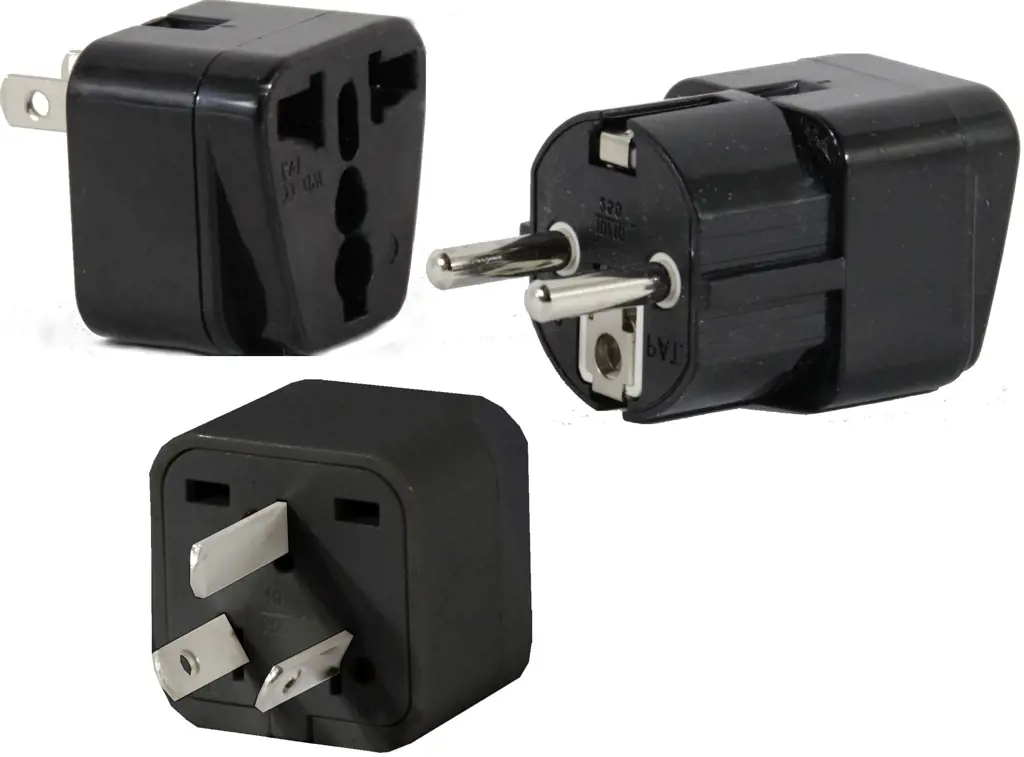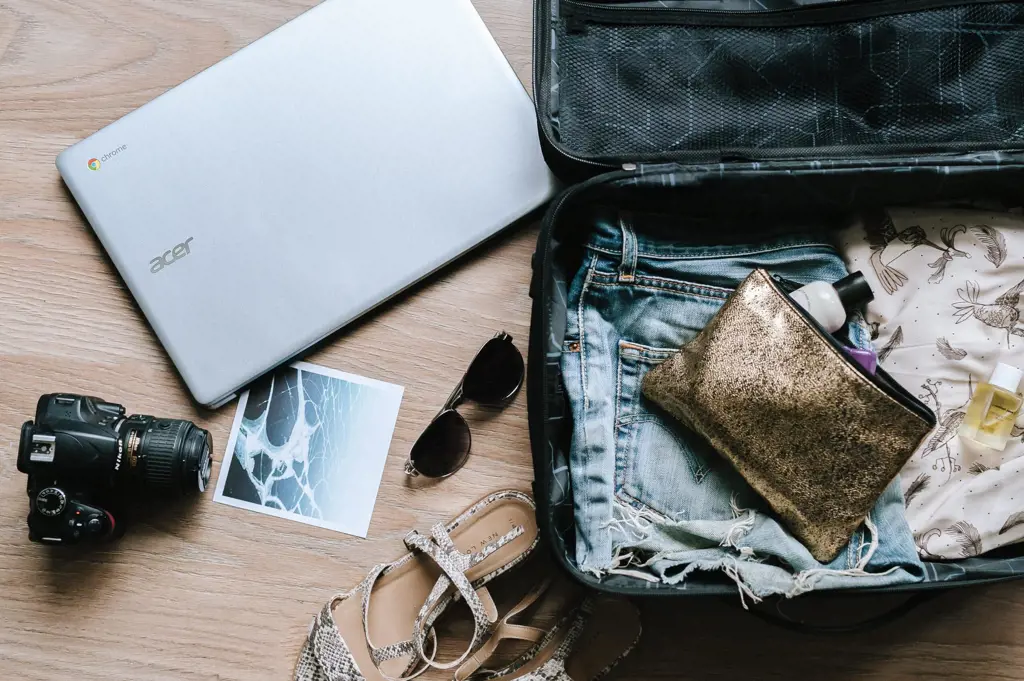
Traveling to China for a business trip can be both exciting and daunting. With its rich history, vibrant culture, and booming economy, there is no doubt that China offers many opportunities for business professionals. However, to ensure a successful trip, it is crucial to pack the right essentials. From language translation devices to business cards and cultural gifts, this guide will provide you with a comprehensive list of must-have items for your journey to the Middle Kingdom. So, get ready to impress your Chinese counterparts and make the most out of your business trip in China!
What You'll Learn
- What essential items should I pack for a business trip to China?
- Are there any specific cultural items or gifts I should bring for business meetings in China?
- What type of clothing should I pack for a business trip to China?
- Are there any specific electronics or adapters I should bring for my trip to China?
- Is there any special documentation or paperwork I should bring for a business trip to China?

What essential items should I pack for a business trip to China?

China is a frequently visited destination for business travelers due to its booming economy and strong economic ties with countries around the world. When packing for a business trip to China, it is important to consider the essential items that will help you navigate the cultural and practical aspects of your trip. Here are some key items that you should pack for a successful business trip to China:
- Travel Documents: Ensure that you have your passport, visa, and any other required travel documents. China has strict entry requirements, so it is important to have all necessary paperwork in order before your departure.
- Business Attire: China has a conservative business culture, so it is important to dress professionally and modestly. Pack a selection of business suits, formal shirts, and ties. Also, consider the weather forecast and pack accordingly.
- Business Cards: Business cards hold immense value in Chinese culture, so make sure to bring a sufficient supply. Include your name, title, company name, and contact details in Chinese on one side of the card. This demonstrates respect for the local culture and makes it easier for Chinese contacts to reach you.
- Language Tools: While English is spoken in many business settings, it is helpful to have some basic knowledge of Mandarin. Pack a pocket Mandarin phrasebook or download a translation app on your smartphone. Knowing a few common phrases will help you in various situations, such as ordering food or communicating with taxi drivers.
- Power Adapter: China uses a unique electrical outlet standard, so make sure to bring a power adapter that is compatible with Chinese outlets. This will ensure that you are able to charge your electronic devices without any issues.
- Portable Wi-Fi Hotspot: Reliable and secure internet access is crucial for successful business trips. Consider investing in a portable Wi-Fi hotspot device to ensure that you have internet connectivity wherever you go. This will allow you to stay connected and access necessary information while on the move.
- Medications and First Aid Kit: It is always a good idea to pack your necessary medications and a basic first aid kit. While China has pharmacies and medical facilities, having your own medications and supplies can be convenient and save you time in case of minor health issues.
- Currency: Make sure to have some Chinese yuan (CNY) with you before your trip. While credit cards are widely accepted in major cities, having cash on hand will be useful in smaller establishments or for making small purchases.
- Travel Insurance: It is advisable to have comprehensive travel insurance that covers medical emergencies, trip cancellation, and lost or stolen belongings. This will provide you with peace of mind and financial protection in case of unforeseen circumstances.
Remember to check the weather forecast for your destination in China and pack appropriate clothing and accessories. Also, research the specific customs and business etiquette in the region you will be visiting to ensure you are well-prepared. By packing these essential items, you will be well-equipped to navigate your business trip to China successfully.
Essential Items to Pack for Exploring the Tikal Ruins
You may want to see also

Are there any specific cultural items or gifts I should bring for business meetings in China?

When it comes to doing business in China, it's important to understand and respect the cultural norms and customs of the country. One aspect of this is the exchange of gifts during business meetings. In Chinese culture, gifts are seen as a way to show respect and build relationships, so bringing a thoughtful and appropriate gift to a business meeting can go a long way in establishing a positive impression.
Here are some tips on what to consider when selecting a gift for a business meeting in China:
- Do your research: Before selecting a gift, it's important to do some research on Chinese culture and customs, as well as the preferences of your Chinese counterparts. Consider their age, status, and interests, as well as any cultural taboos or faux pas to avoid. This will help you select a gift that is both thoughtful and appropriate.
- Choose something meaningful: In Chinese culture, gifts with symbolic meanings are highly valued. For example, the number 8 is considered lucky, so giving a gift with eight pieces or in multiples of eight can be seen as auspicious. Similarly, gifts that have a connection to Chinese history, traditional arts, or calligraphy can be highly appreciated.
- Quality over quantity: In China, the quality and value of a gift are seen as a reflection of the giver's sincerity and respect. It's better to choose a high-quality, well-crafted gift rather than a cheap or mass-produced item. This doesn't mean the gift has to be excessively expensive, but it should be something of good quality and craftsmanship.
- Avoid extravagant gifts: While it's important to give a thoughtful gift, it's also important to avoid giving something too extravagant. In Chinese culture, receiving an excessively expensive gift can put the recipient in an uncomfortable position and may even be seen as bribery. Focus on giving a meaningful and appropriate gift, rather than one that is overly extravagant.
- Consider local products: A good choice for a gift is something that represents your home country or region. This could be a local specialty food item, a traditional handicraft, or a book on your country's history or culture. Bringing something from your own culture can show your Chinese counterparts that you value and respect their culture, and can also serve as a conversation starter.
- Present the gift properly: When presenting a gift, it's important to do so with both hands as a sign of respect. Avoid wrapping the gift in white, as it is traditionally associated with funerals. Instead, opt for bright, festive colors like red or gold. Don't be surprised if the recipient initially declines the gift – it is customary to refuse the gift a few times before accepting it.
Some examples of appropriate gifts for business meetings in China could include a high-quality tea set, a traditional Chinese painting or calligraphy, a well-crafted pen, or a book on Chinese culture or business practices. Ultimately, the key is to select a gift that shows thoughtfulness and respect, while also being culturally appropriate. Taking the time to choose the right gift can help to build a strong foundation for successful business relationships in China.
Essential Items to Pack for a Trip to America in December
You may want to see also

What type of clothing should I pack for a business trip to China?

When packing for a business trip to China, it's important to consider the cultural norms and expectations regarding clothing. China is known for its conservative and formal business culture, so you should aim to dress professionally and modestly. Here are some tips on what type of clothing to pack for a business trip to China:
- Suits and formal attire: It is customary to wear a suit or formal attire when conducting business in China. For men, a dark-colored suit with a conservative tie is appropriate. Women should opt for a dress, skirt, or pantsuit in neutral or dark colors.
- Modest clothing: Chinese culture places a high value on modesty, so avoid wearing revealing or tight-fitting clothing. Women should avoid low-cut tops, short skirts, or clothing that exposes too much skin. Men should avoid wearing sleeveless shirts or shorts, especially in professional settings.
- Conservative colors: When choosing your clothing, opt for conservative colors such as black, gray, navy blue, or dark brown. These colors are seen as professional and respectful in Chinese culture.
- Comfortable shoes: Business trips to China often involve a lot of walking and standing, so make sure to pack comfortable yet professional shoes. Avoid wearing sneakers or open-toed shoes, and opt for closed-toe shoes with a low heel.
- Traditional Chinese elements: While not necessary, incorporating some traditional Chinese elements into your attire can show respect for the culture. For example, wearing a Chinese-inspired accessory such as a brooch or a tie with a subtle Chinese pattern can be a nice touch.
- Climate considerations: China has a diverse climate, so make sure to check the weather forecast for your destination and pack accordingly. If you're traveling to northern China during the winter, for example, it's important to have warm layers and a coat. In more humid regions, such as southern China, lightweight and breathable fabrics are more suitable.
- Business casual for certain occasions: In some instances, a business casual attire may be acceptable, especially for more relaxed meetings or social events. However, it's always better to err on the side of formality and dress more formally than necessary if you're unsure.
Remember, your clothing reflects your professionalism and respect for the Chinese business culture. By dressing appropriately, you can make a positive impression and enhance your business relationships in China.
Essential Gear to Bring on a Polar Bear Expedition in Churchill
You may want to see also

Are there any specific electronics or adapters I should bring for my trip to China?

Visiting a new country can be an exciting adventure, but it's important to be prepared, especially when it comes to electronics and adapters. China follows a different electrical system compared to many other countries, so it's essential to have the right equipment to keep your devices powered and connected. Here are some specific electronics and adapters you should consider bringing for your trip to China.
Power Adapters:
China uses a unique plug type called Type A or Type I. These plugs have two flat pins with or without a grounding pin. To ensure compatibility with your electronic devices, it's crucial to bring power adapters that are compatible with these plug types. It's recommended to purchase adapters before your trip, as they might be difficult to find in local stores.
Voltage Converters:
In addition to the different plug types, China also operates on a different voltage system. Most countries use a voltage of 110-120V, whereas China uses 220-240V. If your electronic devices are not compatible with this higher voltage, you will need to bring a voltage converter. Be sure to check the voltage requirements of your devices before your trip and purchase a converter if necessary to avoid damaging your electronics.
Portable Chargers:
Traveling often involves being on the go for extended periods, which can drain your devices' batteries. Having a portable charger or power bank can be extremely useful when you're unable to find a power outlet or during long journeys. Make sure to bring a portable charger with a capacity that suits your needs, as you may not always have access to electricity to recharge your devices.
Dongles and adapters for internet connectivity:
Staying connected is essential for many travelers, and having the right adapters and dongles can ensure a seamless internet experience. If your devices don't have built-in compatibility with Chinese networks, investing in a SIM card dongle or portable Wi-Fi router can provide you with internet access wherever you go. These devices are readily available in most electronic stores and can save you from relying on potentially unreliable public Wi-Fi networks.
Language Translation Devices:
Language barriers can be a challenge when traveling to a foreign country. Having a language translation device can make communication easier and more efficient. These devices often come with pre-installed translation software and allow you to communicate with locals using text or audio translations. Look for devices that support both English and Mandarin Chinese translations for optimum convenience during your trip.
Remember to double-check the electrical requirements of your specific devices before traveling to China and research the compatibility of your chargers, laptops, cameras, and other electronics. This will help you determine if you need voltage converters, power adapters, or any additional accessories for a smooth and worry-free trip.
In conclusion, bringing the right electronics and adapters can enhance your experience while traveling in China. Power adapters and voltage converters are essential for compatibility with Chinese electrical systems, while portable chargers ensure you're never without power. Dongles and adapters for internet connectivity can keep you connected, and language translation devices can help bridge the communication gap. Being prepared with the right electronics and adapters will ensure a seamless and enjoyable trip to China.
Essential Items to Pack for a Trip to Austria
You may want to see also

Is there any special documentation or paperwork I should bring for a business trip to China?

China is a rapidly growing global business hub, and many companies send their employees on business trips to this country. If you are planning to travel to China for a business trip, there are certain documentation and paperwork requirements that you need to keep in mind. This article will guide you through the necessary preparations to ensure a smooth and successful business trip to China.
Passport and Visa:
The first and foremost requirement for any international travel is a valid passport. Ensure that your passport is valid for at least six months beyond your intended stay in China. Additionally, you will need to apply for a Chinese visa. The type of visa you need depends on the purpose of your visit. For a business trip, you will typically need an M visa, which allows for multiple entries for a specified period. Contact your nearest Chinese embassy or consulate for detailed information on visa requirements and application procedures.
Invitation Letter:
To apply for a business visa, you will need an invitation letter from a Chinese company or organization inviting you to visit for business purposes. The invitation letter should include your full name, passport details, purpose of the visit, duration of stay, and information about the inviting company or organization. Make sure the letter is on official letterhead and signed by an authorized representative.
Itinerary and Hotel Reservations:
Prepare a detailed itinerary that outlines your activities and meetings during your stay in China. This will help immigration officials determine the purpose and duration of your visit. It is also recommended to make hotel reservations in advance and carry confirmation documents to provide proof of accommodation.
Business Cards and Brochures:
Business cards are highly regarded in Chinese culture, so make sure to bring a sufficient number of business cards showcasing your company name, position, and contact details. Chinese counterparts often exchange business cards during introductions, so having a professional card can enhance your credibility. Additionally, if you have company brochures or documents, it is advisable to bring a few copies to share with potential partners or clients.
Copies of Important Documents:
It is always wise to carry copies of important documents such as your passport, Chinese visa, invitation letter, and itinerary. Keep these copies in a separate place from the originals, in case of theft or loss. Having copies will make it easier to replace the lost documents and resolve any issues that may arise.
Money and Currency Exchange:
China's official currency is the Chinese Yuan (CNY). Ensure that you have enough local currency for your immediate needs, such as transportation, meals, and small expenses. You can exchange your currency for Chinese Yuan at the airport or authorized currency exchange centers. It is always a good idea to carry a small amount of cash, as credit cards may not be accepted everywhere.
Travel Insurance:
Obtaining travel insurance is strongly recommended before traveling to China. This will provide coverage for medical emergencies, trip cancellations, loss of baggage, and other unforeseen events. Ensure that your insurance policy is valid for the duration of your stay in China and covers any specific requirements or risks.
In conclusion, preparing the necessary documentation and paperwork is vital for a successful business trip to China. Make sure to carefully review the visa requirements, obtain an invitation letter, create an itinerary, and bring sufficient copies of important documents. Additionally, consider carrying business cards, brochures, local currency, and travel insurance for a seamless and hassle-free experience. With proper preparation, you can focus on your business objectives and make the most of your trip to China.
Essential Items Moms Should Pack When Going to Deliver
You may want to see also
Frequently asked questions
When packing for a business trip to China, it is important to bring professional attire, as business meetings and events in China are typically formal. Men should pack suits, dress shirts, ties, and professional shoes, while women should bring business suits, dresses, blouses, and closed-toe shoes. Additionally, it is important to bring a variety of appropriate clothing for different weather conditions, as China's climate can vary greatly depending on the region.
While not necessary, it is always a thoughtful gesture to bring small gifts that are representative of your home country to present to your Chinese business associates. This could include items such as gourmet chocolates, local wines or spirits, or small souvenirs. It is also a good idea to pack a few business cards with your contact information printed in both English and Chinese, as this is a common practice in China.
When traveling to China, it is important to be mindful of the country's cultural norms and laws. It is advised to leave items such as politically sensitive materials, drugs, and pornography at home, as these items may be subject to strict restrictions or even illegal in China. Additionally, it is always a good idea to check and adhere to the airline's restricted items list to ensure a smooth travel experience.







